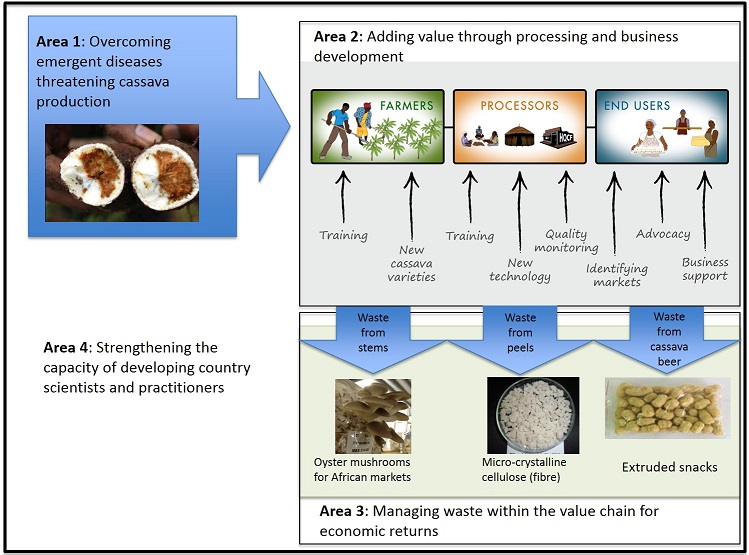Key Areas
NRI's collaborative research and development efforts focus on four key areas:
- Overcoming emergent diseases threatening cassava production
- Adding value through processing and business development
- Managing waste within the value chain for economic returns
- Strengthening the capacity of developing country scientists and practitioners
The first three of these key areas involve all actors in the value chain from farm to fork. The fourth is a cross-cutting area, ensuring that farmers, processors, entrepreneurs, and scientists receive the benefit of relevant training and physical infrastructure to support their work.

More than a third of sub-Saharan Africa’s potential cassava harvest is lost to pests and diseases. The most important of these are viruses; cassava mosaic geminiviruses (CMGs) and cassava brown streak viruses (CBSVs). Greater than half of all cassava plants in sub-Saharan Africa are infected by CMGs that cause cassava mosaic disease (CMD).
NRI and its partners are at the forefront of strategic and adaptive research to enable smallholder farmers to access growth markets to ensure that cassava can be a pro-poor vehicle for economic development. Early funding was from the Department for International Development (DFID) and the European Union Framework Programme.
Postharvest losses for cassava can be significant and come in three forms: physical, economic through discounting or processing into low-value products, and from bio-wastes. Postharvest physical losses are reported to be exceptionally high (ca. 30%) and occur throughout the value chain.
Capacity strengthening activities are central to the institute and include mentoring of individual researchers, formal Master’s and PhD level programmes, mentoring of organisations in the implementation of projects and specific externally funded capacity strengthening projects.